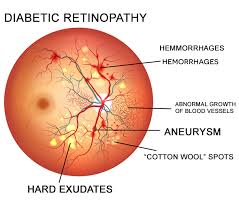Source – gulfnews.com
Dubai: In a bid to curb the rising incidence of diabetes, the Dubai Diabetes Centre (DDC) plans to introduce Artificial Intelligence to detect retinopathy, start tele-monitoring of patients who miss their appointments and also introduce obesity clinics in the emirate.
Elaborating on the use of Artificial Intelligence Dr M Hamed Farooqi, director of the multidisciplinary centre said: “As per international diabetes standards, we need to have 14 retinal images per diabetic. The estimated number of diagnosed diabetics in the UAE exceeds one million. To interpret 14 million images per year, we need more than 50 eye specialists working full-time. Deep learning system (DLS) using Artificial Intelligence are capable of identifying diabetic retinopathy and related eye diseases using retinal images with a high degree of accuracy. Thus using AI cannot only help provide retinopathy screening for a large number of diabetics but also lead to better utilisation of resources and time of ophthalmologists.
Dr Farooqi added: “Use of Artificial Intelligence in detection of diabetic retinopathy can revolutionise the manner in which we screen patients, cutting down time, making the process cost effective and it will provide high quality care which will lead to better utilisation of resources. Ophthalmologists will only need to see retinal images of patients with retinopathy that the system detects as opposed to the current system where they need to screen all patients.”
Humaid Al Qutami, Director-General of the Dubai Health Authority (DHA) conducted an inspectional tour of the centre and was provided with a detailed overview of the recent achievements and further expansion plans of the centre.
Al Qutami highlighted that DHA aims to provide specialised medical services. “Since the start of this centre in 2009, we have come a long way in ensuring that we provide specialised services to people with diabetes under one-roof. We are keen to expand the services of this centre to enhance capacity and provide high-quality multidisciplinary diabetic care to a larger number of patients.”
Dr Ahmed Bin Kalban, CEO of Specialised Healthcare Services Sector at the DHA said, “Diabetes in particular is a disease that requires specialised multidisciplinary care. At the centre, we provide international levels of care and have North American trained specialists such as consultant adult and paediatric endocrinologists, along with the team comprising of nurse educators, dietitians, podiatrists, exercise therapists and retinal camera technicians. Continuity of care is an integral part of the Centre and each patient visits the same consultant every time. Due to the continuous addition of patients, the number of existing patients has gone up considerably causing a delay in getting new patient appointments. Expanding existing facilities will allow us to treat a higher number of new patients and help us provide the usual level of care at the same time.”
Obesity clinic
The Centre will soon begin an obesity clinic to help patients struggling with obesity with realistic and effective ways to lose weight and to maintain that weight loss as well.
Dr Farooqi said: “Managing patients which significant obesity and its underlying complications is a huge challenge. The statistics clearly point out that obesity is one of the major factors contributing to the high prevalence of diabetes in the region. We already have the experts in our centre that will form a dedicated multidisciplinary team to help patients with obesity shed the pounds. This will directly help in improved patient outcomes and better control of diabetes.”
The multidisciplinary team will include:
• Endocrinologists
• Dietitians
• Nurse educators
• Exercise physiologists
• Behavioural therapists (Psychologists)
Tele-monitoring technology for diabetic patients:
Dr Farooqi added that the Centre is also working on another pilot study, which aims to investigate the effective use of tele-monitoring technology in patients who don’t turn up for follow-up visits and as a result have poor diabetic control. These patients then lead to a significant burden on the health system as an outcome of the resulting complications.
The primary objective of this study according to Dr Farooqi is to investigate the use of tele monitoring devices (such as those for blood glucose, blood pressure, weight, pulse oximetry, pulse and ECG, spirometry and point of care labs etc) to gather the relevant data in patients with type 2 diabetes and use mobile-phone applications designed to promote better patient compliance in such patients.
“The other objective is to evaluate the patient electronic health record database of the Centre using AI and DML to identify, if possible, the trends or linkages that would lead to better predictive modelling of those patients that are more likely to be lost to follow-up. Through the use of technology we aim to empower patients and improve patient care,” he added.
